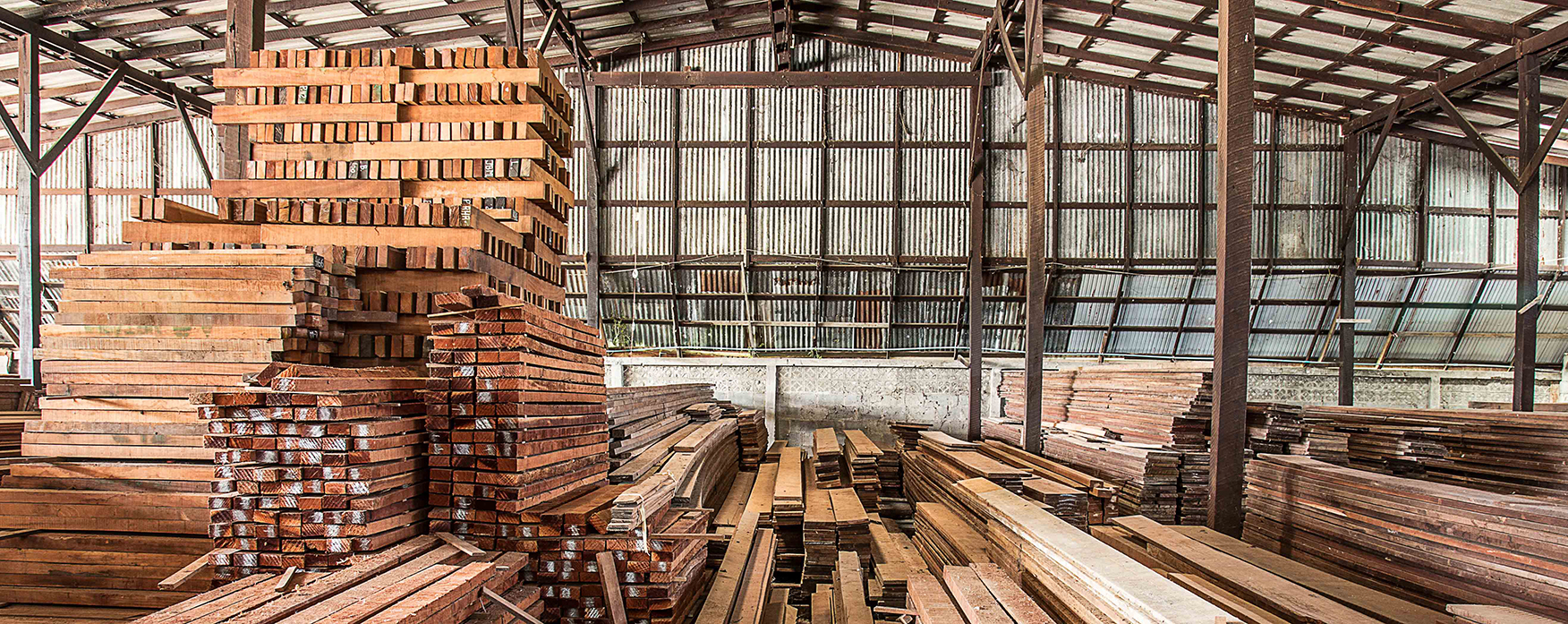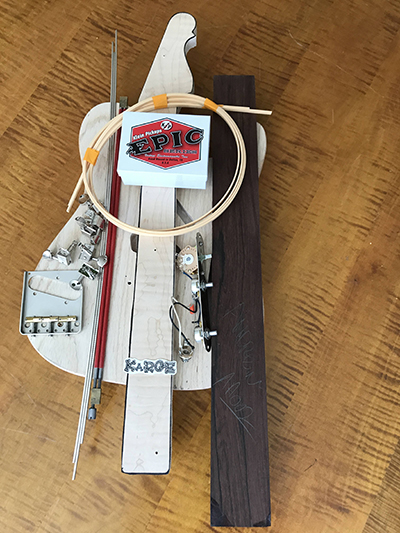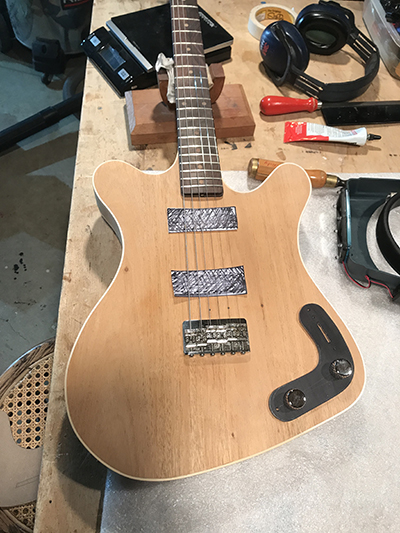The Process
A Karge guitar starts with Randy going to lumberyards to choose the woods that will bring out a guitar’s best qualities.


The Body. For the body, Randy stays with the classic tone woods: swamp ash, alder, and mahogany. For his American Glory Series, he uses reclaimed and salvaged American chestnut.
Having worked as a master wood artisan for 25 years, when he’s looking at wood, he brings a keen sense of how it’s going to react when he cuts it. All of the wood he chooses is quality tone wood (as opposed to, say, white oak), but each piece has its own variations. When a customer talks with him about the kind of tone desired, Randy can advise about which wood will bring it out best.
Body style, of course, can be any of the classics, S-style or T-style, offset, or a custom shape, according to the client’s preference.
The Neck. For the neck shaft, Randy will generally use curly maple wood, a significant aesthetic upgrade from the nondescript, plain-sliced piece of maple you’ll generally see. But a client can order any type of wood for the neck shaft desired, including mahogany, quarter sawn maple, or Ceylon satinwood.
That said, you can get a Karge guitar with whatever neck thickness you specify. Since nothing is mass-produced, whatever guitar you envision is what Randy will make for you.
The Fretboard. Because of his experience with period furniture-making, Randy believes in looking to the past for guidance, and no other tone wood has ever proven better than Brazilian rosewood. Supplies of Brazilian rosewood are dwindling, and there are restrictions on its use. But Randy will source it for customers who request it. Other options for the fretboard include East Indian rosewood, ebony or maple.
You can also choose the fret wire you want.

The Weight. Guitar manufacturers that mass-produce guitars aren’t concerned with the final total weight of the guitar. Karge does concern itself with the weight. Typically, it comes in at seven pounds or less—yet retains all the resonance and tone of a heavier model. Again, better sound, less fatigue.
The Strings. Strings are part and parcel of a Karge custom order. Randy will fashion the nut to accommodate your preference of string gauge.
The Pickups. The hallmark of a fine electric guitar is that it sounds good unplugged. When that’s the case, chances are it’s going to sound even better amplified. And if the pick-up doing the amplifying is high-quality, the sound will be exceptional! Pickups are a customer option, but Randy highly recommends Klein Pickups.
He is such a believer in Klein pickups that Karge Guitars has become an authorized Klein pickup dealer.
The Timeframe. Once you place an order, it takes 12 to 16 weeks to make your custom Karge guitar.
The Price. Karges are very competitively priced, starting at $2,600 and rarely rising above $4,000.
